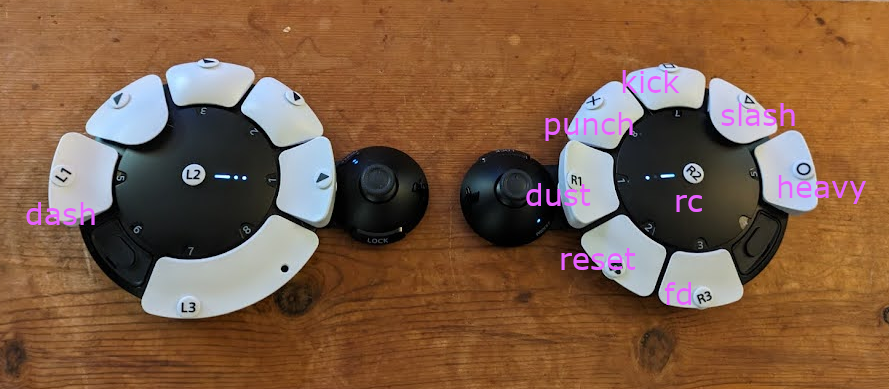At the start of the year, I decided I wanted go into business for myself as a “Freelance Mathematician” and begin offering tutoring services to the general public. I’ve been tutoring off and on for decades, but usually it was done pro bono for close friends or students enrolled in a class I was teaching. I always just did it because I enjoyed it, and anyone who knows me knows how I “light up” for a tricky math problem.
Now that I’m attempting to turn the activity into a for-profit service, I figured I would need a method of advertising to reach potential clients. It’s with that in mind that I decided to revive my Twitch Channel and put it to work. “Free Tutoring Tuesdays on Twitch” is my way of balancing my philosophy of always helping others in need with the necessity of finding some stable source of income for myself.
During one of my early streams, one of my first viewers asked if I had a specific goal in Guilty Gear: Strive (GGST). While I remarked on stream that I’ve been trying to beat the “Celestial Challenge”, I’ve been thinking that it’s something deeper than that. I’m trying to beat the Celestial Challenge with a non-binary character and on a controller specifically designed for accessibility. The reason I’m streaming this game at this time is to show how efforts by game developers to create a more inclusive environment can ultimately benefit the community at large.
The unfortunately reality is that both math classes and video game communities have historically been a hostile environment for people who are not white, male, straight, and abled. These problems are often exacerbated when competition is involved. If there’s one thing I learned while teaching, it’s that feeling safe is a necessary prerequisite for learning to take place. I want to make a place where people can come to ask questions about math or fighting games without being judged for who they are or where they are in the learning process.
I made a decision to stream GGST based on a number of factors. Some of these reasons are practical, like having a Teen rating and the ability to easily stop and start as needed, but others are more personal. I could probably do a whole post on why I’m playing Testament, but one the important points is that this is probably the first time I’ve seen a non-binary character in pop-culture that felt like a full person and not just a walking cliché. Representation matters. The steps GGST has taken to simultaneously diversify the cast, desexualize the costumes, and simplify the game mechanics, have all worked together to make it one of the most enjoyable fighting games I’ve played in years.
At the same time, becoming an “older gamer” has added a new set of obstacles to my favorite pastime. My hands just don’t work like they used to, so I was really excited when Sony unveiled their new PS Access controller:
This controller has been a game-changer for me because I can layout the buttons precisely how I want them. I wanted to be able to have a button for each finger in a position that is gentle on my wrists and shoulders. I needed to buy two Access Controllers to do this, but the important point is that I could.

Sony designed originally designed this controller for people with disabilities, but those same design choices have benefits for the population at large. As a math teacher, I saw a similar effect in the classroom will specifically designed instruction. By making modifications to a lesson that address the special needs of a few, you often end up with a lesson that works better for everyone. We all benefit from improved accessibility.
In summary, my goal behind streaming GGST is to encourage the recent cultural shift towards making the fighting game community more inclusive because I think a similar shift needs to take place in education as well. I think there’s many parallels between learning how to “do math” and “play fighting games”. I was inspired in part by “educational” GGST streamers, like Hotashi, Romolla, Diaphone, and Daru I-No, who are able to look at each match as an opportunity for learning. The ability to objectively examine one’s performance is as applicable to learning math as it is to learning fighting games.
I don’t expect to be winning tournaments anytime soon. My official EVO record to date is 0-2. I might not be the best player out there, but I’ve been playing games like this for a long time and have a strong background in the mathematical principles behind them. So come watch my stream, bring your math homework, and maybe we can do some learning together!
